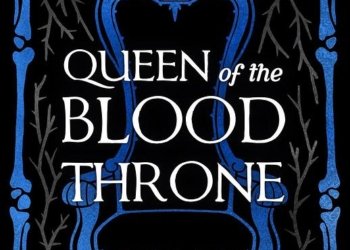No products in the cart.
Extremely Loud and Incredibly Close by Jonathan Safran Foer
Oskar Schell, a nine-year-old boy in Jonathan Safran Foer’s Extremely Loud and Incredibly Close, is on a mission that will take him all across New York City. His father, who perished in the September 11, 2001, terrorist attack on the World Trade Center, left him a key. He investigates fresh strategies to protect those he loves as he moves from borough to borough.
Some books are read and purportedly comprehended by readers in an effort to appear intelligent among their peer group. Although it got mixed reviews, the book Extremely Loud and Incredibly Close succeeded well in sales and was adapted into a movie in 2011. The novel was described as “thinner, overextended, and sentimentally watery” by John Updike in his New Yorker review. My buddy described the book as “amazing, life-changing, and heart-wrenching” when she suggested that I read it. Although she claims that Extremely Loud and Incredibly Close transformed her life, I thought it was a little less life-altering.
The September 11, 2001 terrorist events had a profound impact on all of us. Many of us can still recall exactly where we were when we got the news on this particular day. A few years after the tragic event, a narrative about a young boy who lost someone very important to him on that horrible day could not help but stir up feelings of profound sorrow in readers.
Who wouldn’t care about the future of little Oskar and desire the best for him? The events that occur next are like bouncing on a castle between Oskar’s recollections and experiences. Oskar, who traverses New York City asking people with the last name Black if they know a key that his father left behind, is precocious and artificial. Oskar creates things as he travels, and occasionally his creations shamelessly and subtly manipulate the reader.
Extremely Loud and Incredibly Close had passages that reminded me of classic Vonnegut, but in my opinion, those passages were more accidentally ridiculous than esoterically strange. Foer accomplished the unthinkable while I finished reading Extremely Loud and Incredibly Close: he made me not care about a youngster who lost his father in a horrific accident. The plot was hazy at times, unclear at others, and all around challenging to follow. I’m hesitant to bring up a letter that a nine-year-old child read concerning the grandmother’s sexual life.
The more fascinating news is that Jonathan Safran Foer and Extremely Loud and Incredibly Close appear to be the subject of several plagiarism allegations. I won’t link to anything bad about the author, but if you’re curious, try a Google search. I find it terribly hard to believe that there is another such book out there and especially hard to believe that anyone would copy it, but that is the claim.
Extremely Loud and Incredibly Close was adored by many readers (though scores also found it overworked and under-interesting). Don’t let my review convince you that this isn’t the book for you. I would continue perusing if I were the person in the bookstore who was standing at the shelf. It’s possible that I just didn’t get Extremely Loud and Incredibly Close because it was arrogant and overly experimental.
About The Book
A funny, uplifting novel about a boy’s journey through New York in the aftermath of September 11th from one of today’s most celebrated writers.
Nine-year-old Oskar Schell embarks on an urgent, secret mission that will take him through the five boroughs of New York. His goal is to find the lock that matches a mysterious key that belonged to his father, who died in the World Trade Center on the morning of September 11.
This seemingly impossible task will bring Oskar into contact with survivors of all sorts of an exhilarating, affecting, often hilarious, and ultimately healing journey. With humor, tenderness, and awe, Jonathan Safran Foer confronts the traumas of our country’s difficult history.
The Review
Extremely Loud and Incredibly Close
9 Score
This novel is beautiful. The writing is done at a very high level. As others have pointed out, the book switches perspectives often, going from Oskar's POV to letters to his grandparents'. I've read that some found this confusing, but I was never confused at all. I found it very easy to follow. This was on par with many of the classics that I've had to read for school. The literary gimmicks were effective more often than not, although some of them didn't need to be in there. They didn't bother me though, I just thought that the writer was being creative and trying something different, which I never think is a bad thing. If the gimmicks were in a poorly written novel I might have a problem with them, but the writing in this book is so well done that the author can throw in the blank pages and pictures and get away with it. It does not take away from the story, and in many places makes it better.
PROS
- Very Well Written.
- Incredibly Great Stream.
- Extremely Good & Incredibly Inventive.
- A Moving And Very Excellent Story.
CONS
- Just Awwful.
- This Was Horrible!
- Extremely Slow.
- Incredibly Boring.











